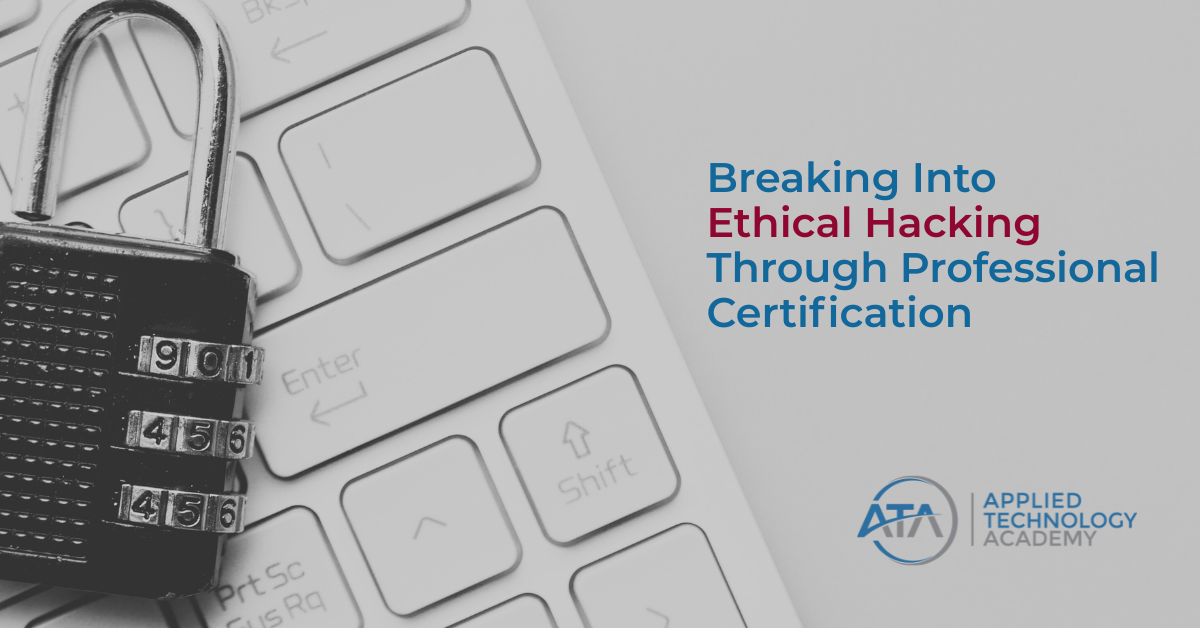If you’ve been curious about cybersecurity and have a strong interest in solving problems, ethical hacking might be calling your name. It’s a role where curiosity meets career, and it’s all about using those problem-solving chops to test and strengthen digital systems before the bad guys can get in. A lot of people hear “hacking” and immediately think illegal or shady, but ethical hackers are actually the heroes who find the weaknesses before they’re exploited.
Getting into ethical hacking isn’t about knowing everything upfront. It’s about being open to learning and putting in the time for legitimate training. That’s where certification comes in. With the right certification, you’ll not only build core technical skills but also gain credibility in a space that values trust and accountability. Whether you’re starting fresh or shifting paths within the tech field, a structured certification can get your foot in the door.
What Is Ethical Hacking?
Ethical hacking, sometimes called white-hat hacking, means legally testing computers, networks, or systems to discover security gaps before malicious attackers can take advantage of them. Ethical hackers work with permission from owners or employers to find vulnerabilities and report them—before it’s too late.
Some people imagine ethical hackers sitting in dark rooms typing endlessly on green screens, but real-life ethical hacking is more thoughtful than theatrical. It involves planning, analysis, creativity, and clear communication. Ethical hackers often work on teams and need to explain their findings in easy-to-understand ways so that businesses can fix weaknesses without delay.
These are typical tasks an ethical hacker may handle:
– Scanning for open ports and vulnerabilities across systems
– Testing known exploits in a safe, authorized setting
– Writing detailed reports that describe the bugs or issues found
– Recommending steps to fix or secure systems
Unlike the hackers seen in movies, ethical hackers operate within set legal and professional standards. They don’t just poke around for fun. Their actions follow a clear process designed to help organizations stay secure.
Why Penetration Testing Certification Matters
Penetration testing is a key piece of ethical hacking that focuses on mimicking real attacks in a controlled way. Earning a penetration testing certification proves you have the skills needed to carry out these tests responsibly and safely. It shows that you’ve received specific training and understand how to apply security knowledge in practical terms.
Without formal certification, breaking into the field can be difficult. Employers and clients want to work with people they can rely on. Certification confirms that you’ve been tested on the relevant material and that you know how to operate under real-world conditions. Knowing how to exploit a vulnerability matters, but knowing how to do it legally and effectively matters more.
Certified penetration testers are expected to know:
– How to define a test plan from start to finish
– Which tools are best at each test phase
– How to organize and communicate results clearly
– How to suggest useful takeaways that follow industry best practices
This kind of training isn’t just technical—it involves thinking about security from a big-picture perspective. It teaches you how to approach issues logically and responsibly, without cutting corners.
Steps to Become a Certified Ethical Hacker
Starting out in ethical hacking takes planning and preparation. Even before choosing a certification course, you’ll want to make sure you’ve got the basics covered. This usually means having knowledge of IT fundamentals such as how operating systems and networks function. A few years of IT experience might help, but it’s not required if you’re a strong self-starter with a willingness to learn.
The next step is to look for a training program that fits your goals. Focus on courses that don’t just teach theory but emphasize hands-on practice. A good program provides real-world scenarios, such as mock penetration tests, where you can try out your skills under supervision.
To help get ready for certification exams, try these early tips:
– Set up a weekly study routine and stick to it
– Take multiple-choice practice questions to sharpen your recall
– Join study groups or online forums to ask questions and learn from others
– Watch educational videos and read trusted cybersecurity books
The more active you are during your learning process, the better prepared you’ll be when it’s time to test.
Choosing the Right Certification Program
With many options available, picking the right certification program might seem overwhelming. Focus on your learning style and end goals. Some certifications are widely recognized and may offer advantage if you’re looking for global work or specialized roles.
Solid programs offer a mix of hands-on labs and classroom-style lessons. Some of the most recognized certifications include Certified Ethical Hacker (CEH) and Offensive Security Certified Professional (OSCP). Each has a different focus, so explore course outlines to see what suits your needs best.
When looking at training providers, ask yourself:
– Do they offer real-time help or mentorship while you learn?
– Are their instructors experienced and reputable in the cybersecurity field?
– Is there positive feedback or testimonials from past students?
Match your learning approach with the program that’s most likely to keep you engaged and on track.
Staying Updated in the Field
Getting certified is just one step in a long, exciting process. The cybersecurity world changes quickly, and staying sharp is part of the job. To keep up, you’ll need to keep learning through continuous education and exposure to what’s new in the field.
Use these strategies to stay current:
– Subscribe to credible cybersecurity blogs and news sites
– Attend regular webinars and virtual conferences
– Join hacker forums and online communities for tips and networking
Being active in these spaces lets you stay connected with other professionals and sharpen your edge. You’ll also learn about new tools, tactics, and even job openings you might not find elsewhere.
Embarking on Your Ethical Hacking Career
Once you’ve earned your certification, it’s time to explore what’s next. Early career roles like junior penetration tester, SOC analyst, or IT security technician are great starting points. These give you a space to apply what you’ve learned while growing your skills on the job alongside more experienced team members.
Over time, ethical hackers can move into more advanced roles like cybersecurity consultant, threat hunter, or systems auditor. Career growth in this area is tied closely to learning and evolving. The more you engage with new challenges and tools, the more value you provide to future employers.
Stay connected to peers, keep sharpening your skills, and don’t lose sight of the curiosity that got you here. Ethical hacking is a field built on continuous learning, and keeping that energy alive will help you grow into roles that are both meaningful and impactful.
Whether you’re just starting or looking to advance, a certification can open many doors in your ethical hacking career. To learn more about how a penetration testing certification can benefit your path, check out the opportunities that Applied Technology Academy offers for hands-on, real-world training and see where they can take you.




